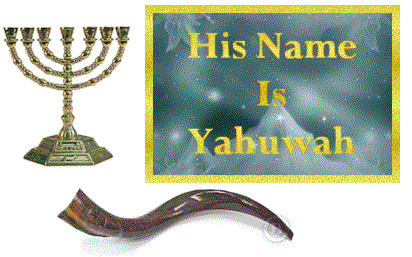Chapter 11
Testimonies to the Historic "a" Sound
At the End of the Set-Apart Name
At about 1516 Peter Galitin felt that he made a great discovery, that the set-apart name was more accurately pronounced IEHOVAH; from this point forward reformers felt they were on to a new revelation of the set-apart name. William Tyndale slipped it in his Bible of 1530 in a few places. Other Bibles like Coverdale, 1599 Geneva Bible, and the 1611 King James Version followed in succession. This was due to the learning of Hebrew by Peter Galitin, and reading the vowel points of the Masoretic Hebrew text.
The name Yehovah had the vowel points of another word, because Jewish scribes in the Dark Ages placed vowel points above and below the four letters to remind the reader to say Adonai (Lord) instead of the set-apart name. Peter Galitin did not know this, he just simply read it the way it was written.
But, before 1516 Roman scholars and theologians in the 1400's and 1500's used the form Jova, before that it was Iova, and before that it was Ioua, (Which form is seen in the Oxford English Dictionary under Jehovah). The sentence is in Latin, and reads:
"Non enim he quatuor liter
![]() si ut punctate sunti, legantur, Ioua reddunt: sed (ut
ipsi optime nosti) Iehoua efficiunt]."
si ut punctate sunti, legantur, Ioua reddunt: sed (ut
ipsi optime nosti) Iehoua efficiunt]."
The sentence basically translates: "Not certain here of four
letter ![]() (or) if in what manner to punctuate with marks the magnificent
leger, Ioua redundant: apart from what manner He is able to do. Until then Iehova will suffice."
(or) if in what manner to punctuate with marks the magnificent
leger, Ioua redundant: apart from what manner He is able to do. Until then Iehova will suffice."
Also a book called Origen's Hexapla (not the original), but put together by Roman theologians in the 16th century, the text shows Jova Deus.
Also in 1278, Raymundus Martini came out with a book called Pugiofidei (Daggar of Faith), wherein he spelled the name Yohoua. Some time after, in 1303, Porchetus de Salvaticus completed a work called Victoria Porcheti adversus impios Hebraeos (Porchetus' Victory Against the Ungodly Hebrews). In this book he also referred to the name spelling it variously Iohouah, lohoua and Ihouah.
It shall now be admitted that these forms are not necessarily from the best of sources, nor are they very old, but are from Catholic writers during the Dark Ages. Nevertheless, they are forms that existed, and should be brought to light for what ever purpose they might serve. The Reformation did not begin until about 1353, with John Wycliffe.
